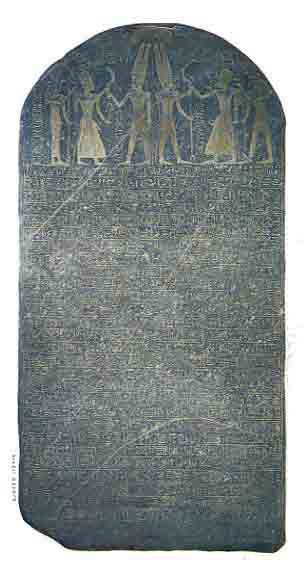Image Details

Jurgen Lieppe
The Merneptah stele. Discovered a century ago at Thebes, this 7.5-foot-high, hieroglyphic-covered black granite slab was commissioned by Pharaoh Merneptah during his fifth regnal year—1207 B.C.E.—to boast of his military successes in Libya and during a campaign in Canaan at the beginning of his rule five years earlier. It declares, “Canaan has been plundered into every sort of woe, Ashkelon has been overcome, Gezer has been captured. Yanoam was made nonexistent; Israel is laid waste, his seed is not.” The premature boast regarding Israel—the earliest non-Biblical reference—appears to the left of center in the second line from the bottom (see detail). Unpronounced signs, called determinatives, attached to the names in this section of the stele indicate that Israel, unlike the others, denoted a people and not a place. The Merneptah Stele shows that just a few years before the Sea Peoples began arriving on the Canaanite coast a people named Israel was known to the pharaoh of Egypt and that he felt it was worth boasting about having defeated them in battle.
